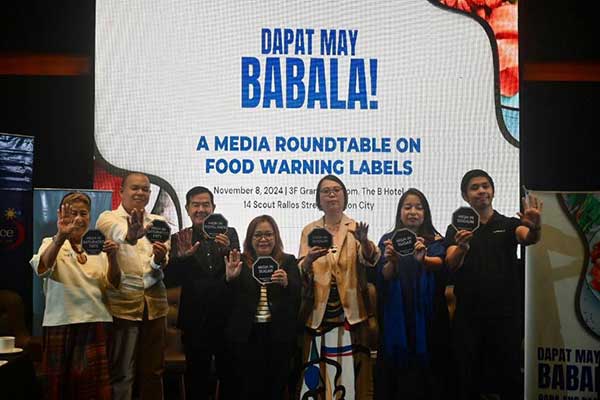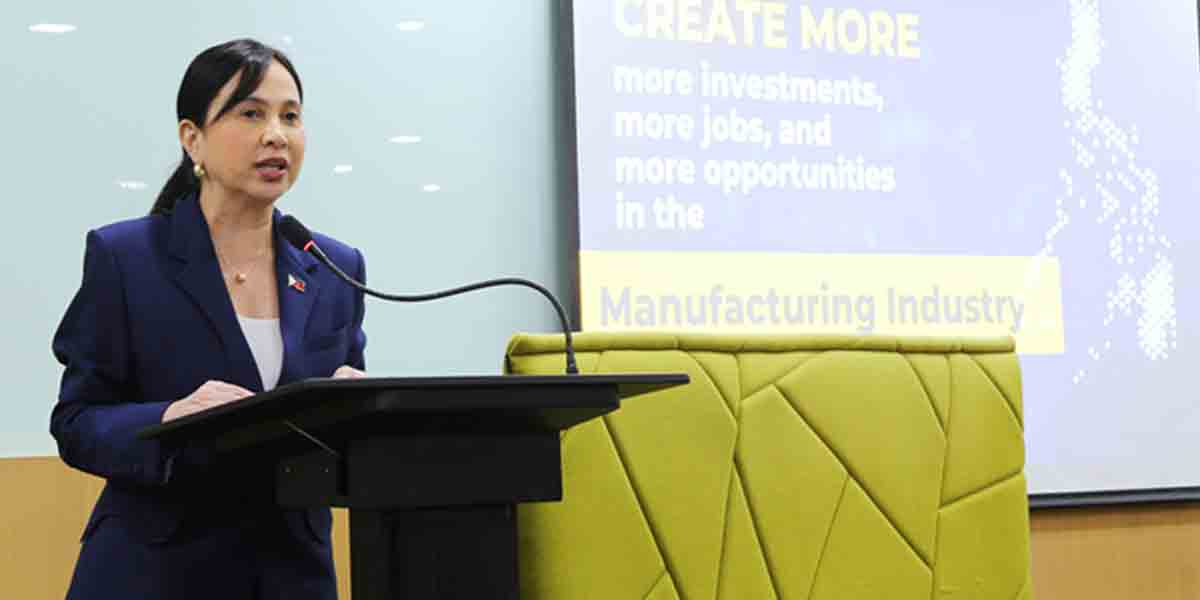
By Joseph Bernard A. Marzan
Advocacy groups launched a media campaign on Friday, November 8, to raise awareness about the importance of warning labels on processed food products to help prevent non-communicable diseases (NCDs) linked to unhealthy eating.
The “Dapat May Babala” campaign included the unveiling of a video advertisement encouraging parents to check the food they buy at grocery stores and a mini-exhibit showcasing processed food and their nutritional content.
The advertisement will be aired on major television networks, video platforms, social media, and in print.
The campaign aims to push policymakers to mandate black-and-white octagonal warning labels on the front of food products, indicating high levels of total fat, saturated fat, sugar, and sodium.
HealthJustice Philippines, the Healthy Philippines Alliance (HPA), and ImagineLaw spearheaded the campaign.
A Social Weather Stations (SWS) survey commissioned by HPA in the first quarter of 2024 found that 66 percent of Filipinos support a policy requiring food warning labels on pre-packaged and ultra-processed food and beverages.
Of those in favor, 39 percent said they would strongly support such a policy.
The survey also revealed that 62 percent of Filipinos found the black octagonal shape most effective in communicating health risks compared to other labeling formats.
HealthJustice Philippines project manager Beverly Samson emphasized the need for warning labels, noting that many Filipinos do not verify the nutritional facts on food packaging.
“It’s not just one type of chronic illness or life-threatening disease. Many NCDs are related to high consumption of ultra-processed food, which underscores the need for regulation. We are all exposed to these products, so food regulation is necessary, and one approach is through warning labels,” Samson said.
ImagineLaw project manager Lawrence Mikhail Millan conducted a workshop for media, highlighting the difficulty of interpreting nutritional facts without calculations.
He used popular food products as examples, showcasing their high content of sodium, total fat, saturated fat, and sugar, which are often marketed as “healthy” options.
“Nutrition facts still require calculations that most Filipinos don’t have time to do. Filipinos lead fast-paced lives due to traffic and work. We don’t really have the time,” he said.
“The warning labels interpret the nutrition facts at the back and display them at the front, clearly stating ‘High in’ or ‘mataas sa’ for what needs to be avoided,” he added.
Millan cited examples of other countries that have implemented similar warning labels, including Argentina, Brazil, Chile, Israel, Mexico, Peru, and Uruguay, with Canada set to follow in 2025.
Former health secretary and Healthy Philippines Alliance lead convenor Dr. Jaime Galvez Tan said this is only the initial step toward addressing unhealthy food consumption, referencing past policy measures against tobacco use.
“The food warning labels are the first step. We’re not saying this is the only step. With tobacco, the first step was taxation, and labeling came second. We are studying this [food warning labels],” Tan said.
“We’re looking at countries that have successfully changed product formulations and reduced NCD rates. We’re not relying solely on warning labels. Other measures can be taken, but one step at a time,” he added.
Daily Guardian found six pending bills in the 19th Congress advocating for the mandatory use of food warning labels, including Senate Bill (SB) No. 2700 and House Bill (HB) Nos. 9819, 10198, 10244, 10674, and 10886.
SB No. 2700, authored by Senator Risa Hontiveros, has been pending with the Senate Health and Demography committee since July 29, 2024.
HB Nos. 9819 (by Rep. Reynolds Michael Tan) and 10886 (by Rep. Maria Rachel Arenas) have been pending in the House Health committee since January 29 and September 11, respectively, while Nos. 10198 (by Rep. Ma. Alana Samantha Santos), 10244 (by Arenas), and 10674 (by Rep. Alfred Delos Santos) have been pending in the Trade and Industry committee since April 29 and July 31, respectively.





















